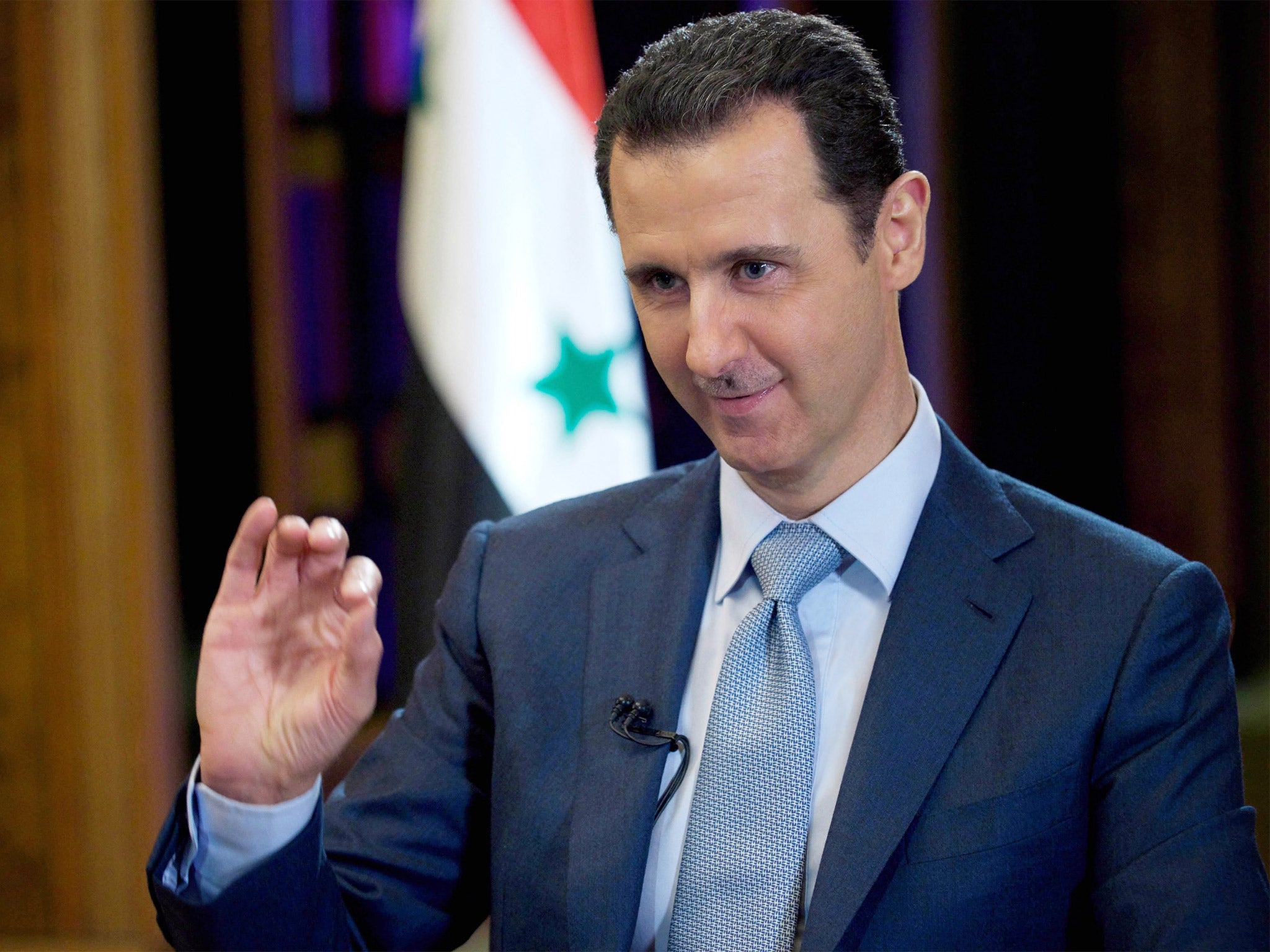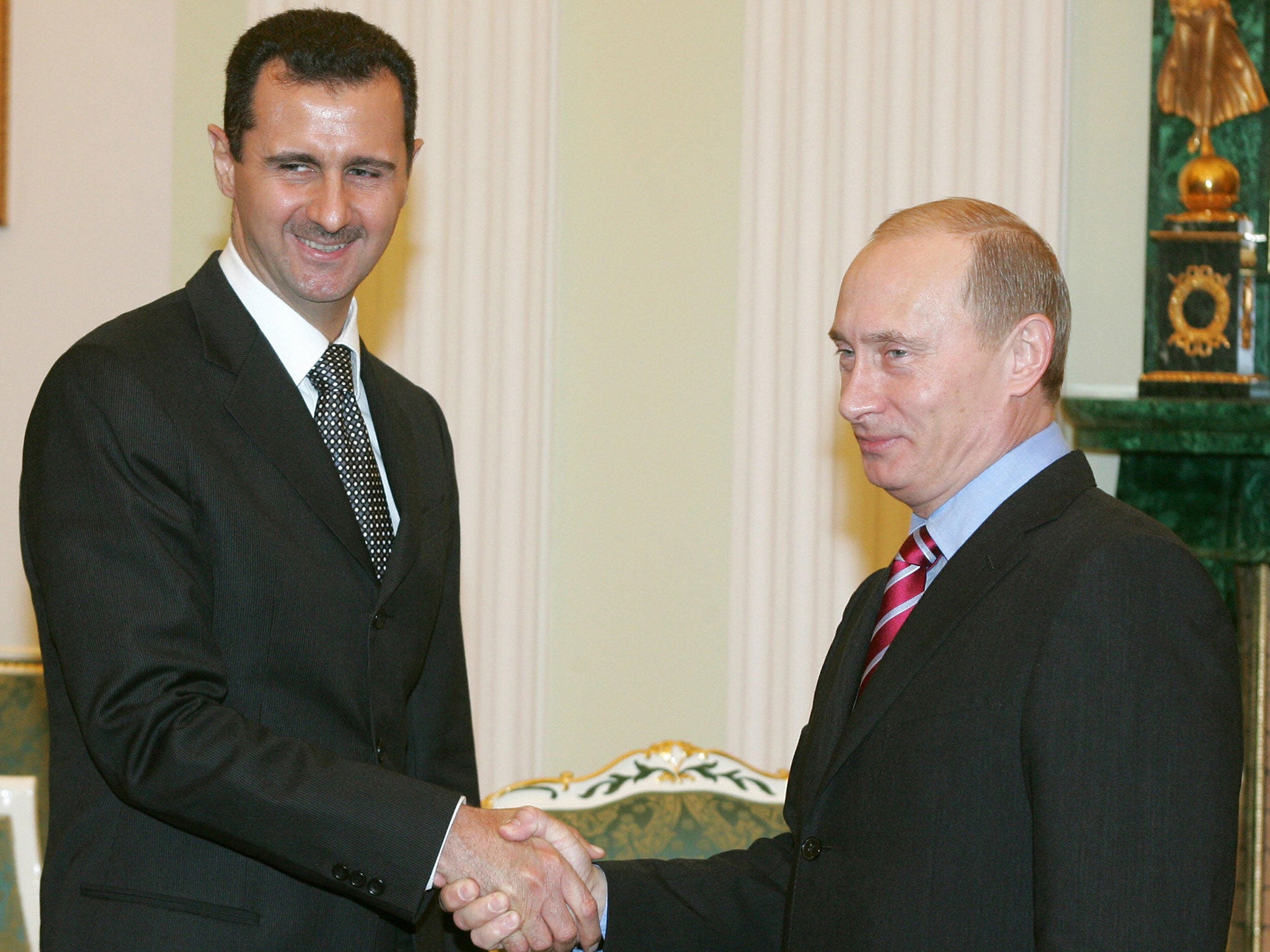Syria conflict: Israeli and US alarm as Russia gives Assad regime anti-aircraft missile system
President Putin is expected to go to the UN later this month to propose a new 'international alliance' against Isis

Your support helps us to tell the story
From reproductive rights to climate change to Big Tech, The Independent is on the ground when the story is developing. Whether it's investigating the financials of Elon Musk's pro-Trump PAC or producing our latest documentary, 'The A Word', which shines a light on the American women fighting for reproductive rights, we know how important it is to parse out the facts from the messaging.
At such a critical moment in US history, we need reporters on the ground. Your donation allows us to keep sending journalists to speak to both sides of the story.
The Independent is trusted by Americans across the entire political spectrum. And unlike many other quality news outlets, we choose not to lock Americans out of our reporting and analysis with paywalls. We believe quality journalism should be available to everyone, paid for by those who can afford it.
Your support makes all the difference.The United States and Israel have voiced concern about Russia’s intentions in Syria amid signs that Moscow and the West are being sucked further into the conflict.
The Israeli Prime Minister, Benjamin Netanyahu, will visit Russia next week to ask President Vladimir Putin about his reported plans to deploy advanced ground-to-air missiles to assist the Syrian government.
The French government said it would expand its existing air-to-ground operations against Isis in Iraq and would join the US in attacking Isis in Syria within the next few weeks. At the same time, Moscow is stoking up diplomatic – and domestic political – pressure on Western countries to abandon their opposition to the Syrian President, Bashar al-Assad.
Mr Putin is expected to go to the United Nations later this month to propose a new “international alliance” against Isis. He will suggest that the only way to defeat the Islamists, and check the Syrian refugee tide into Europe, is for the West to swallow its pride and support Mr Assad’s regime.

The Syrian President was given a forum on Russian media to make the same argument. Mr Assad said that Western governments had only themselves to blame for the European refugee crisis. Millions of Syrians had fled the country, he said, to escape “terrorists” supported by the West and Gulf states.
“Stop, if you are worried about [the refugees], stop supporting terrorists,” Mr Assad said. The Assad regime uses the word “terrorists” to mean secular opposition movements as well as Isis.
Some of the estimated five million Syrian refugees now outside the country have fled from Isis-controlled territory. Many others have abandoned their homes to escape indiscriminate bombardment by Assad-controlled forces.
The United States expressed its concern about the Russian military build-up. Secretary of State John Kerry had made Washington’s views known in a telephone call to the Russian Foreign Minister, Sergei Lavrov.
Any attempt to prop up Mr Assad, diplomatically or militarily, Mr Kerry had said, “risks exacerbating and extending the conflict, and undermining our shared goal of fighting extremism”.
In an unexpected development, Israel also expressed its deep concern at the new Russian military deployments.
Mr Netanyahu will fly to Moscow next week to state his fears that Russian weapons – especially hi-tech anti-aircraft missiles – could find their way into the hands of Mr Assad’s Hezbollah allies on the Lebanon-Israeli border. “The Prime Minister will present the threats to Israel emanating from the increased flow of advanced weaponry to the Syrian arena and from the transfer of lethal weaponry to Hezbollah and other terrorist groups,” an Israeli spokesman said.
Russia, a long-term ally of the Assad regime, is reported to have deployed seven battle tanks, a handful of troops and artillery to Syria in recent days. Both Western and Russian sources have also spoken of plans by Moscow to add an advanced SA-22 surface-to-air missile system to Syria.
France joined the United States in rejecting the renewed overtures from Moscow for support for the Assad regime. The French Defence Minister, Yves Le Drian, also confirmed that a dozen French air force jets currently based in Jordan to carry out attacks on Isis targets in Iraq would also be flying missions into Syria in the coming weeks.
Mr Drian said France’s change of strategy – a switch also being considered by Britain – was a response to worrying developments on the ground.
Join our commenting forum
Join thought-provoking conversations, follow other Independent readers and see their replies
Comments